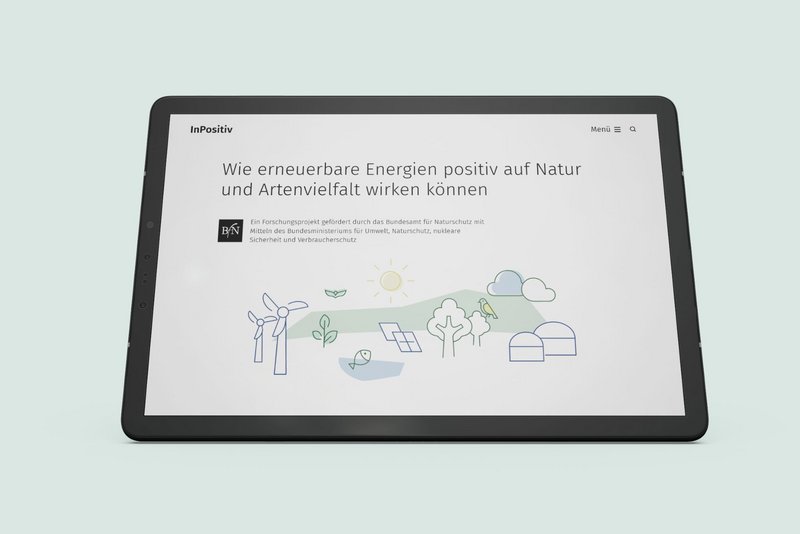InPositiv is a multidisciplinary project that combines expertise from social psychology, ecology and landscape planning, economics and the natural sciences. The project, which is funded by the German Federal Agency for Nature Conservation, fills a gap - because while the negative impacts of the expansion of renewable energies on nature and landscape are often well known, positive effects remain hidden time and again. The new website adds these aspects to the public discussion.
Website www.erneuerbare-energien-und-natur.de
In research on the acceptance of renewable energies, it has been noticed time and again: Where new renewable energy plants are to be built, a lack of positive examples and of factual knowledge can distort the public discussion and lead to controversy. In order to achieve sustainable acceptance of an expansion of renewable energies that is compatible with nature, it is therefore important to highlight the positive effects of such plants on nature more strongly than before and as concretely as possible - without calling nature conservation concerns into question.
To this end, the website developed in the InPositiv project now illustrates indirect and direct positive effects of renewable energies: For solar energy, biomass and wind energy, concrete examples of responsible design in terms of nature, landscape and species conservation are presented in each case. This shows how the undesirable consequences of plants can be mitigated at their locations, and how in some cases they can even have a direct positive effect.

